- Development
- Learn More
- News
- 2025
2025
- Office of Development and Alumni Engagement
-
Learn More
-
News
-
2025
- First gift from alumna, nursing leader Dr. Sonja R. Fuqua
- Longtime medical technologist funds SHRP’s first MLS scholarship
- Jackson-based architecture firm Wier Boerner Allin is supporting research efforts at Children’s of Mississippi.
- Thanks to philanthropy, NICU families stay connected with AngelEye
- TOUCHED BY DEMENTIA
- 2024
- 2023
-
2025
- Contact Us
- Development Accounting
- Privacy Statement
- Map
- Meet Our Team
- Alumni Engagement
-
News
- Where to Give
- How to Give
- Day of Giving
- Donate Online
Experiences Associated with Diseases of the Mind Lead to Support for New Clinic
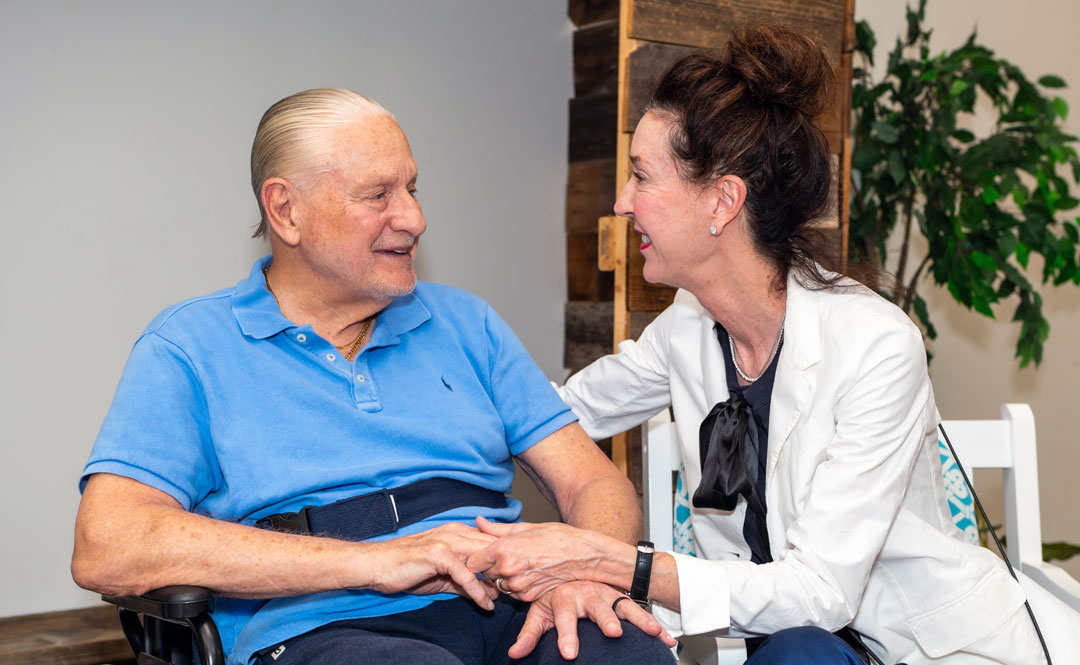
Though a recent anonymous million-dollar match will helpbring the campaign to build a centralized clinic for the Memory Impairment and Neurodegenerative Dementia (MIND) Center closer toasuccessful end, reaching the $10 million goal is possible because of the many significant gifts the University of Mississippi Medical Center has received since the campaign’s launch in 2023.
Most of the private gifts designated to support the new Fred R. Adams, Jr. MIND Center and Geriatric Clinic have been given by families or individuals directly affected by diseases of the mind.
For example, Anna Katherine and Ron Scott, now of Ridgeland, Mississippi, met on a blind date in the Washington, D.C., area30 years ago. He was an independent shoe retailer; sheworked intelevisionadvertising. They led a beautiful life together, enjoying the bustle of the nation’s capital and traveling extensively for work and leisure.
But four years ago, the couple’s lifestyle began to change.
“Ron became more withdrawn, and I noticed subtle changes in his mood & language skills,” Anna Katherine Scott said. “At the recommendation of his urologist, we made an appointment at The MIND Center in 2022. In hindsight, we were clearly facing some sort of cognitive decline. Ron’s aphasia started in late 2022.”
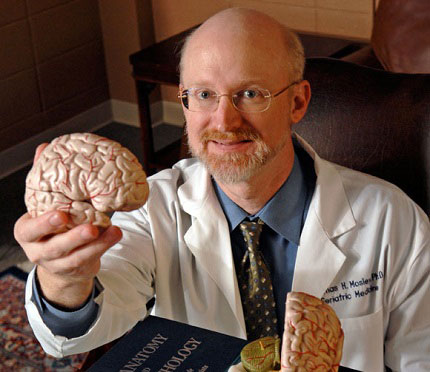
After multiple tests and appointments at The MIND Center, Ron Scott was diagnosed with frontotemporal dementia in August 2023. His full diagnosis became frontotemporal dementia, primary expressive aphasia and parkinsonism.
“Admittedly, I did not handle this well, especially in the beginning,” his wife said. “It was so much information, and I could not comprehend it all.It was hard to believe that our lives were shifting so significantly. In 2023, we took 10 trips focusing on going to as many places as we could, knowing our travel days ahead were fading.”
Although Ron Scott is now wheelchair bound, he is still able to stand and pivot, but it is becoming more challenging, which means he needs professional assistance 24/7. His wife, once the director of a national sales team, now manages a full-time staff of health care workers in their home.
“I’m cognizant of how blessed we are to be able to have him at home,” the donor said. “I suddenly found myself a true caregiver, and I love taking care of him. He is so content and so sweet. I consider it a privilege to walk through this season of our lives together. I don’t consider this a battle and I don’t consider it something that’s necessarily bad.It’s just different.”
Her positive perspective and mental wellbeing are possible in part because of The MIND Center’s guidance and compassion, not only for the patient but also for the patient’s primary caregivers.
“The MIND Center staff members have been so kind. They have continued to keep up with us although Ron is now under hospice care. They are there for us and available anytime,” she said. “I have really appreciated that because it can feel really lonely out there.”
It’s the Scotts’ experience at The MIND Center that led them to make a major gift in support of the new centralized campus.
“I feel strongly about this new centralized campus for The MIND Center that will expand the opportunity for more people to be served and served faster,” she said. “The MIND Center is a huge gift to not only the city but also the state. It’s an incredible place, and I feel honored to be about to contribute to this exciting project.
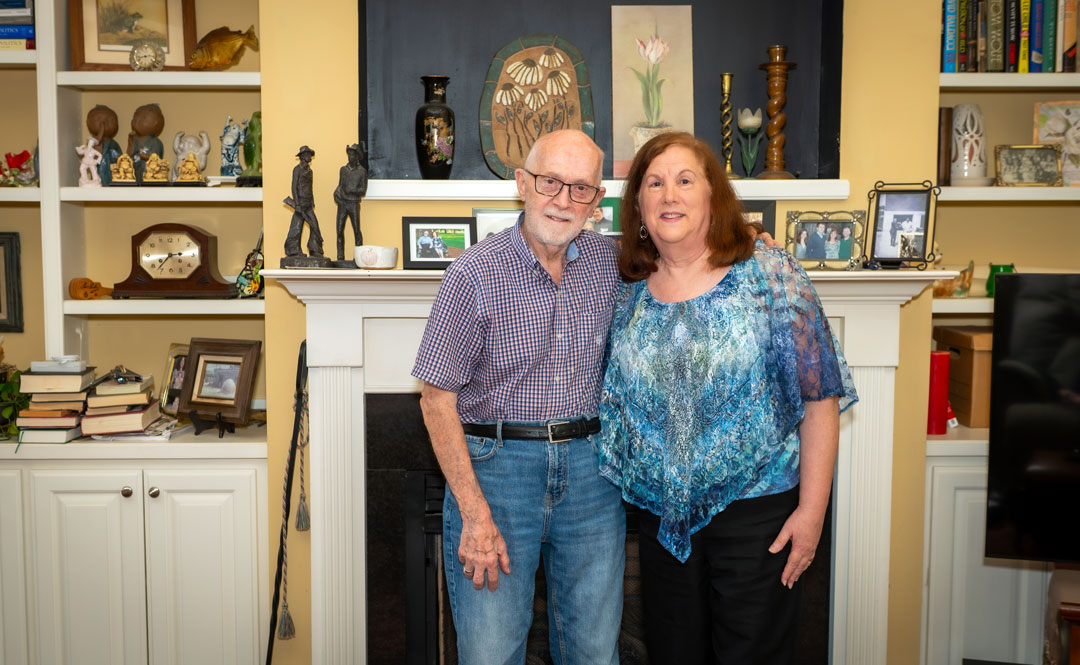
Serving as her mother’s caregiver was an experience that led Nancy Brown (right) and her husband, Cecil, to make a major gift in support of The MIND Center.
Nancy Brown of Oxford, Mississippi, hopes The MIND Center will lead the charge toward finding a cure for Alzheimer’s and related illnesses.
Tears line Brown’s eyelids when she thinks of the 10 years of challenges she faced as her parents’ primarycaregiver. In the early 2000s, her mother, Thelma Haas,began showing symptoms of vascular dementiaand Alzheimer’s disease that prevented her from providing adequate care for Brown’s father, Harry Haas,who hadlung cancer.
“Dad was in hospice at home, and Momwas supposed to help take care of him, but she couldn’t do it,” said Brown of Oxford, Mississippi. “I got frustrated because I would give her his medication instructions and later find that she hadn’t done anything. I got angry, which I guess is common among caregivers.
“Mom would call and say, ‘I don’t know what to do.’ Well, that was my feeling as well,” she continued.“So, my father got worse. I had to go to their home every single day and spend hours, just making sure he was eating or drinking because she couldn’t do it. At the very end of his life, he drew me to him and whispered, ‘Find out what’s wrong with Mom.’”
As her mother’s condition worsened, Brownresearched the complicated processes associated with finding a diagnosis at a time when The MIND Center was yet to be established. She shuffled her mother through two different hospitals and admitted her into an assisted living community, an Alzheimer’s care unit and ultimately a nursing home—all while undergoing chemotherapy and surgery forbreast cancer.
“The stress of all that was overwhelming at that point,” said Brown, adding that she was also continuing to work as a part-time math teacher. “I got off at noon and immediately went to deal with Mom every day.I feel like I have PTSD from the process of having to go through all of this.”
It was these years of Brown’s life that led her and her husband, Cecil, to make a $50,000 gift to The MIND Center’s campaign.
“Our commitment to The MIND Center is very personal to me, and I hope that the researchers find what’s causing Alzheimer’s, so they can stop it or slow it down so families don’t have to keep doing what they’re doing,” she said. “I want The MIND Center to have as much money as they need, and I will continue to support them as long as I’m able. This disease is something that must be figured out.”
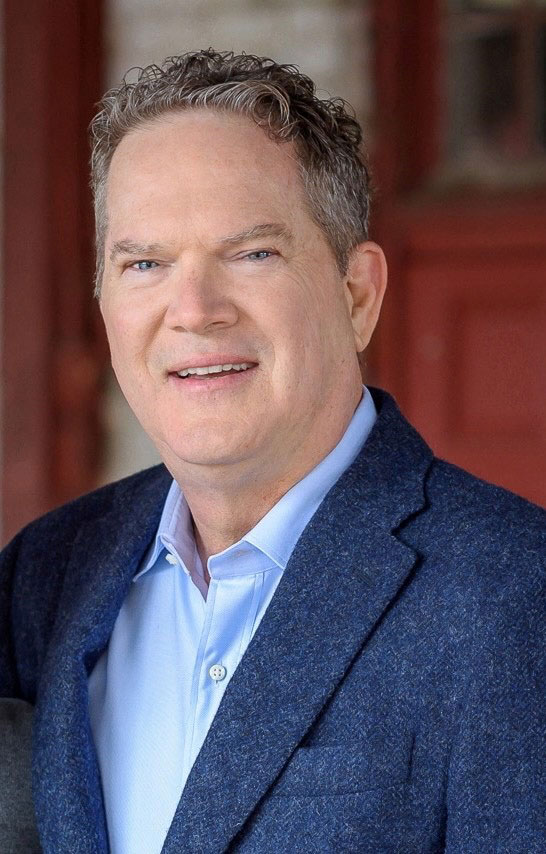
Lyons Brewer of Atlanta, Georgia, made a $100,000 gift to the campaign to help build awareness for the clinic that provides not only comprehensive care to patients but alsocompassionate outreach to family members who often feel the strain inherent in caregiving.
“After at least three generations of family loss to Alzheimer's disease, our family gratefully supports The MIND Center in its vital efforts to support our family and friends affected by dementia,” Brewer said. “A central tenet, ‘to take care of the caregiver(s)’, is one of The MIND Center’s most comprehensive coordinating and decision-making objectives — one that leads to the best care for the patient and the caregiver — and we hope our gift will help The MIND Center continue that level of care for years to come.”
Fountain Family Foundation representative Lynette Fountainof Jackson shared a similar sentiment: “While we know UMMC does so much good for our community in so many ways, we decided to focus our current giving to UMMC on The MIND Center.”
The foundation made a $75,000 gift.
“With the clinic’semphasis on Alzheimer’s treatment and research, we believe this is a very worthwhile way to focus our efforts,” she continued. “Having family members impacted by this dreadful disease, we hope that in some way our contribution can help lead to effective treatment options and ultimately a cure.”
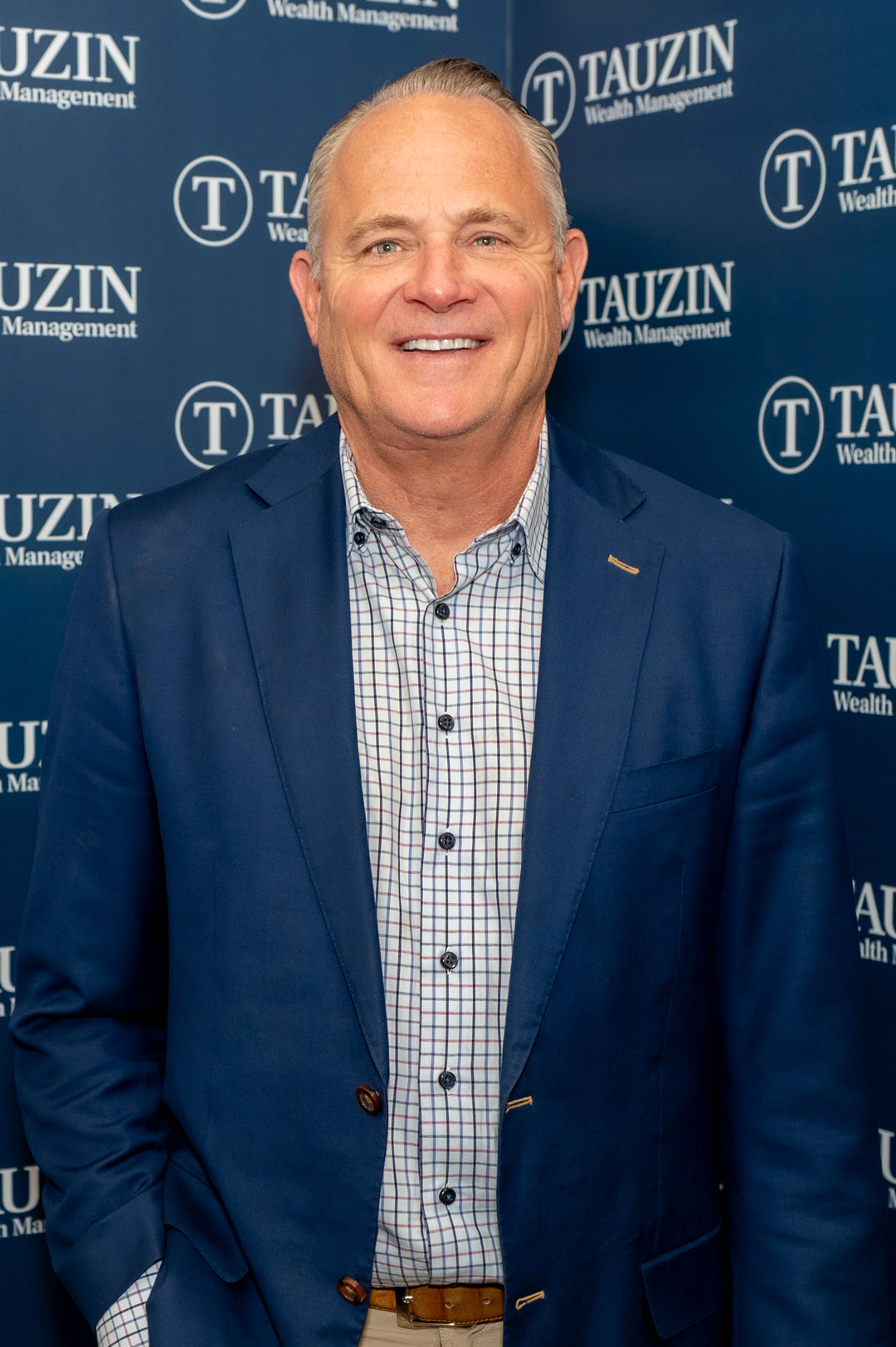
MIND Center board member Todd Tauzin of Ridgeland, Mississippi, whose family and clients were also touched by the disease, made a $50,000 gift to the campaign—the most recent of many gifts Tauzin has made to UMMC over the past seven years.
“Once I got involved with The MIND Center, I realized it’s not well known, and it’s a phenomenal facility to have in this region,” Tauzin said. “My passion is to spread the word about its deep impact on our community with respect to research and, most importantly, how we serve people with Alzheimer’s and their families.”
UMMC is honoring the donor’ssupport by naming a diagnostic room in honor of his father, Joseph C. Tauzin, who died in 2022 from Alzheimer’s as did his paternal grandmother previously.
“Wealso have had clients— at least six males under the age of 62 —impacted by the disease, and all of that inspired me to want to get involved with helping to raise money for this new clinic,” Tauzin said. “It’s going to be very accessiblefor people with Alzheimer’s and it’s going to be a really nice, great environment for the clinical staff as they treat patients.”
Dr. Tom Mosley, the Robbie and Dudley Hughes Distinguished MIND Center Chair and director of The MIND Center, expressed appreciation for the private support that makes this clinic possible.
“We are so grateful to all those whose gifts have started the important work of establishing this clinic,” he said. “I have said many times that the battle we are waging against Alzheimer’s and dementia is reaching epidemic proportions.
“The Fred R. Adams, Jr. MIND Center and Geriatric Clinic is pivotal to providing care to those patients—and will be a model of how to provide that care in a way that meets the needs of geriatric patients and their families and caregivers.”
The state-of-the-art, 30,000-square-foot, stand-alonefacilityis expected to open in 2026. Physicians could see more than 6,300 patients each year in the four-story clinic that will feature 28 exam rooms; consultation, therapy and counseling rooms; learning rooms for training of future doctors; radiology and onsite lab services and a large community room.
The third floor, dedicated to research, will also be home to The UMMC MIND Center-Mayo Clinic Study of Aging, which offers older adults the opportunity to participate in groundbreaking research on the causes, prevention and treatment of dementia.
The multidisciplinary clinic team will include geriatricians, neurologists, consulting psychiatrists and neuropsychologists, pharmacists, nurse practitioners, nurse case managers and social workers, all highly trained in the care of older adults and persons with dementia.
To support The MIND Center at the University of Mississippi Medical Center, visit /givenow/ or contact Lee Anne Bryan, director of philanthropy and engagement-The MIND Center at 601-815-4299 or lbryan@umc.edu.
By Bill Dabney/UM Foundation


